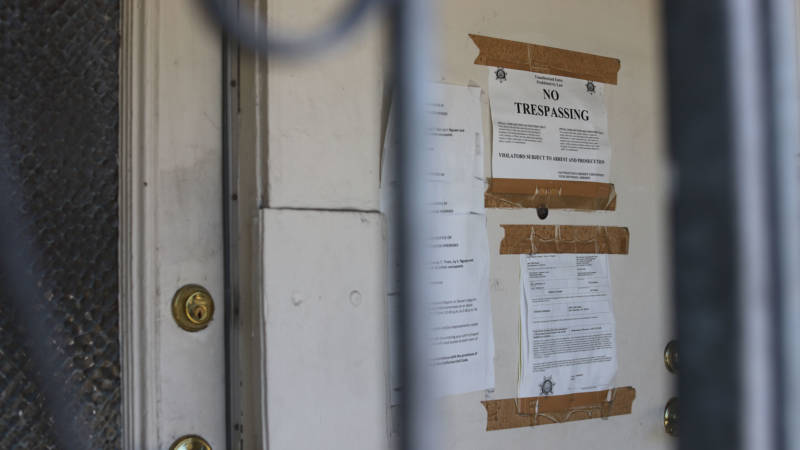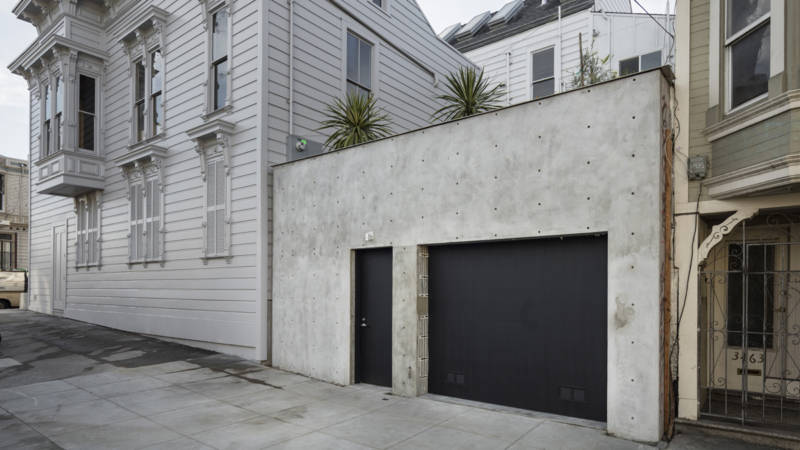In 1975, David Ireland bought an 1886 Italianate-style home in the Mission District of San Francisco and proceeded to incorporate its existing contents and surroundings into works of art.
He coated the walls in tinted polyurethane, enjoying how it reflected the colors of passing cars, and installed the previous owner’s belongings as sculptures. He even enlisted a tenant at the time of his purchase in a 1979 “action” by throwing the 95-year-old a birthday party.
Now, however, the owner of the late conceptual artist’s home, prominent local arts funder and collector Carlie Wilmans, appears to be a different kind of landlord. She’s evicting the neighbors—a multigenerational family of six, including an 80-year-old Chinese immigrant with disabilities who’s lived at the property since 1995.
Wilmans bought 500 Capp Street to preserve Ireland’s work, forming a nonprofit foundation and opening it to the public in 2016. She also acquired the duplex next door, quickly moving to evict its tenants. As the San Francisco Examiner first reported, Wilmans plans to “donate” use of the duplex to her 500 Capp Street Foundation.
Wilmans and her attorney, Scott Freedman, frame the evictions as part of an altruistic project to provide artists free temporary lodging. But critics call it a brazen case of “artwashing,” whereby galleries tout cultural benefits to mask the pernicious effects of gentrification.

Wilmans is a board member at 500 Capp Street Foundation, the San Francisco Museum of Modern Art and California College of the Arts, as well as the Wattis Foundation, an arts grant-making organization named for her grandmother, the late philanthropist Phyllis Wattis.



